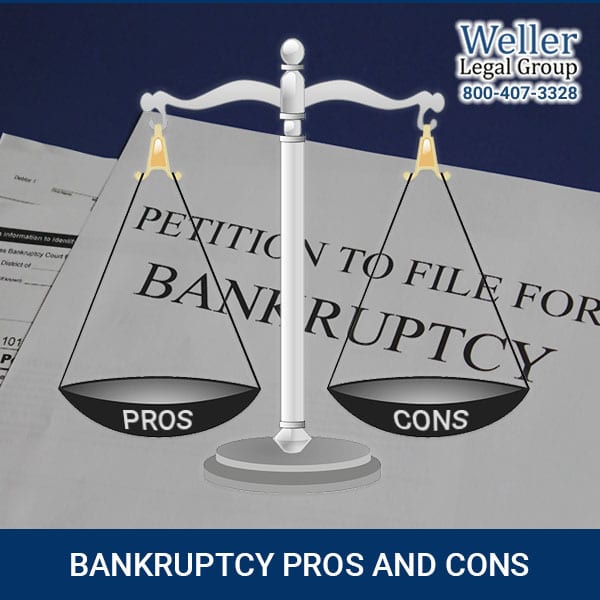 The pros and cons of Bankruptcy are myriad. Among the cons of bankruptcy, is the filing of a Chapter 7 or Chapter 13 Bankruptcy will appear on your consumer credit report for a period of ten (10) years. Presently, in order to qualify for a federally backed mortgage loan, a debtor’s bankruptcy must be a least two years old. Some creditors may not extend credit to debtor’s who are still within a bankruptcy.
The pros and cons of Bankruptcy are myriad. Among the cons of bankruptcy, is the filing of a Chapter 7 or Chapter 13 Bankruptcy will appear on your consumer credit report for a period of ten (10) years. Presently, in order to qualify for a federally backed mortgage loan, a debtor’s bankruptcy must be a least two years old. Some creditors may not extend credit to debtor’s who are still within a bankruptcy.
Some creditors will extend credit to a debtor still in bankruptcy, with the understanding that since the bankruptcy has already been filed, a debt assumed after the filing of the bankruptcy, is ordinarily not subject to Discharge in a Bankruptcy. One exception to this general rule is when a Chapter 13 debtor converts his or her Chapter 13 bankruptcy into a Chapter 7 bankruptcy. When such a debtor converts to the Chapter 7, the debtor may schedule for Discharge certain debts that were acquired after the filing of the Chapter 13 bankruptcy.
Sometimes, filing Bankruptcy has an adverse effect on one’s credit score. For some Clients, filing bankruptcy dramatically improves their credit score. The majority of our Clients at Weller Legal Group over the years have enjoyed improved credit within two years of filing the bankruptcy.
Bankruptcy in some instances may greatly improve one’s credit. The Discharge in a Chapter 7 bankruptcy or Chapter 7 bankruptcy means that one’s dischargeable debts are eliminated through the mechanism of bankruptcy. The reduction or elimination of one’s debts generally dramatically increases his or her debt to income ratio. The debt to income ratio is an important consideration in the determination of your credit score or credit rating.
Bankruptcy has clear advantages for some debtors. Bankruptcy, through the automatic stay, generally stops all foreclosures on homesteads or other real property. Bankruptcy usually stops wage garnishments, most lawsuits, and collection activity by even the most aggressive of creditors, including the Internal Revenue Service.
Bankruptcy can permit a debtor to only pay the true value of his automobile with the negative equity forgiven through bankruptcy procedures. A debtor may also refinance his or her automobile, often dramatically reducing the interest rate owed pursuant to the original automobile loan agreement.
Bankruptcy has many advantages and possibly many disadvantages. Such determination is based upon the facts of your particular case.
Picture Credit: OpenClipart-Vectors

